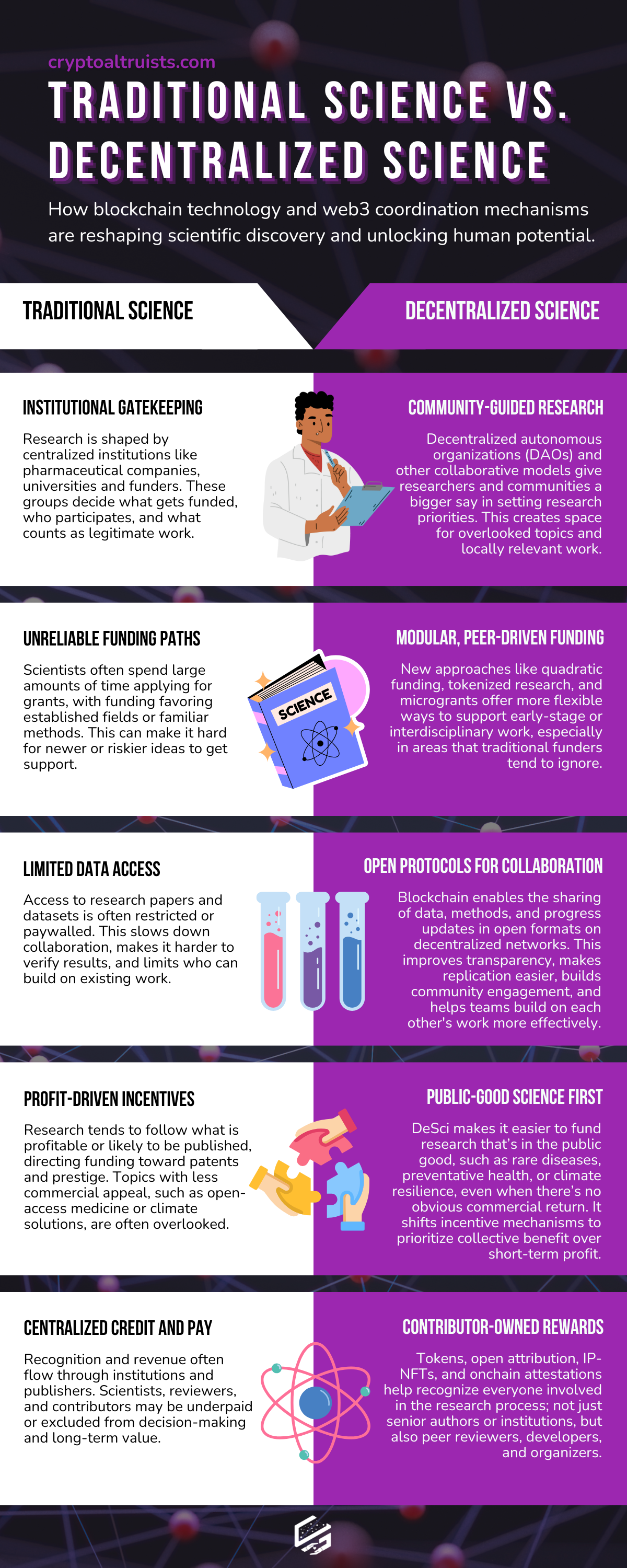
How blockchain technology and web3 coordination mechanisms are reshaping scientific discovery and unlocking human potential.
Research is shaped by centralized institutions like universities, pharmaceutical companies, and grant agencies. These groups decide what gets funded, who participates, and what counts as legitimate work.
Scientists often spend large amounts of time applying for grants, with funding favoring established fields or familiar methods. This can make it hard for newer or riskier ideas to get support.
Access to research papers and datasets is often restricted or paywalled. This slows down collaboration, makes it harder to verify results, and limits who can build on existing work.
Research tends to follow what is profitable or likely to be published, directing funding toward patents and prestige. Topics with less commercial appeal, such as open-access medicine or climate solutions, are often overlooked.
Recognition and revenue often flow through institutions and publishers. Scientists, reviewers, and contributors may be underpaid or excluded from decision-making and long-term value.
Decentralized autonomous organizations (DAOs) and other collaborative models give researchers and communities a bigger say in setting research priorities. This creates space for overlooked topics and locally relevant work.
New approaches like quadratic funding, tokenized research, and microgrants offer more flexible ways to support early-stage or interdisciplinary work, especially in areas that traditional funders tend to ignore.
Blockchain enables the sharing of data, methods, and progress updates in open formats on decentralized networks. This improves transparency, makes replication easier, builds community engagement, and helps teams build on each other's work more effectively.
DeSci makes it easier to fund research that’s in the public good, such as rare diseases, preventative health, or climate resilience, even when there’s no obvious commercial return. It shifts incentive mechanisms to prioritize collective benefit over short-term profit.
Tokens, open attribution, IP-NFTs, and onchain attestations help recognize everyone involved in the research process; not just senior authors or institutions, but also peer reviewers, developers, and organizers.
Support thoughtful, independent crypto journalism and help us continue highlighting blockchain’s potential for social and environmental impact.
cryptoaltruists.eth